15 years ago, Blink scared the hell out of me - Doctor Who needs to recapture that power
As Doctor Who prepares for a new era, it could learn a lot from this iconic episode
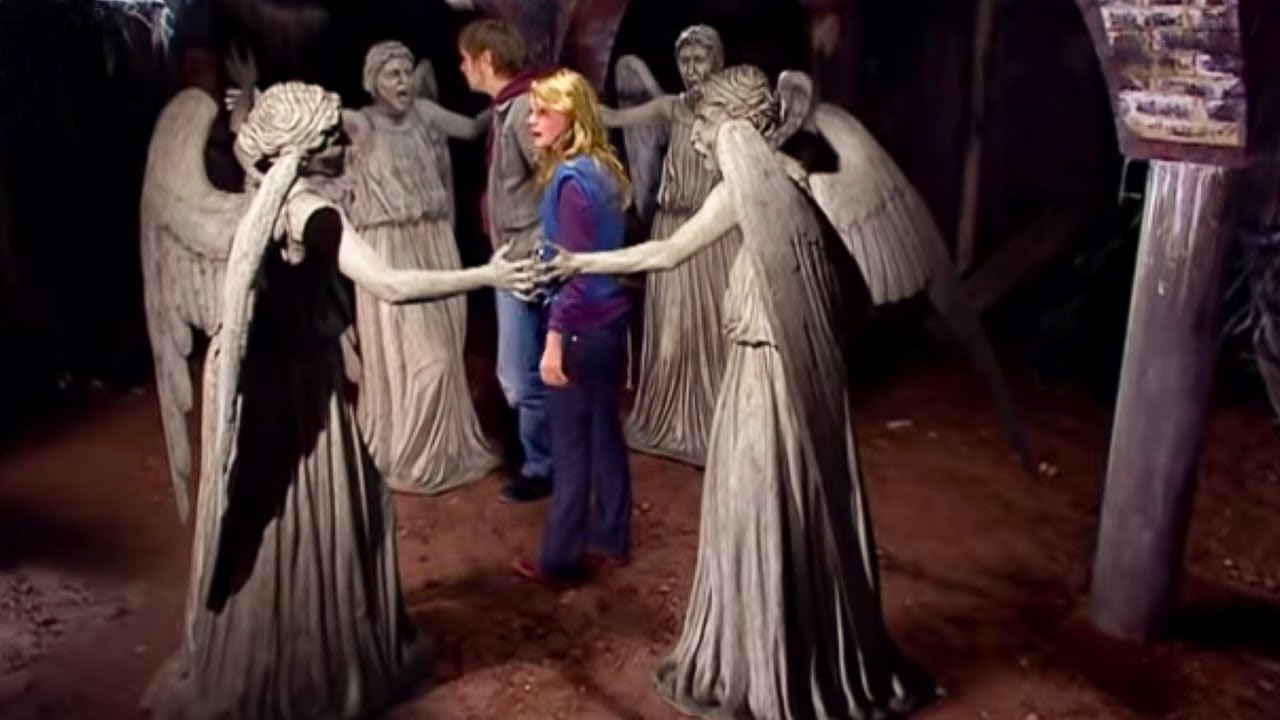
For a show that bills itself as entertainment for all the family, Doctor Who somehow had a unique ability to be scary, never more so than with Blink, an iconic episode which celebrates its 15th anniversary next week.
Blink followed urban explorer Sally Sparrow as she unraveled a mystery spanning nine decades all the while fleeing from aliens that have taken the form of weeping angel stone statues - aptly named the Weeping Angels.
These sculptures can move when not in your line of vision, edging towards prey in order to drain their life potential. Worse yet, drunk in their power, the Weeping Angels have a penchant for playing with their food, cruelly stalking Sally and several other victims over the course of the episode to tragic ends.
Doctor Who is primarily a sci-fi adventure, most of its formula is and always has been a cat and mouse between the Doctor and his foes, monster of the week episodes hinging around creatures, but Blink was on a different level. It scared the hell out of me and it stayed with me to this day.
So, as the show prepares for a reboot, with former showrunner Russell T. Davies back on board and Sex Education’s Ncuti Gatwa freshly cast as a new timelord, I thought I’d celebrate what made Blink so special and so terrifying, and look at what lessons it can give the new cast and crew as they try and give the franchise a much-needed shot in the arm…
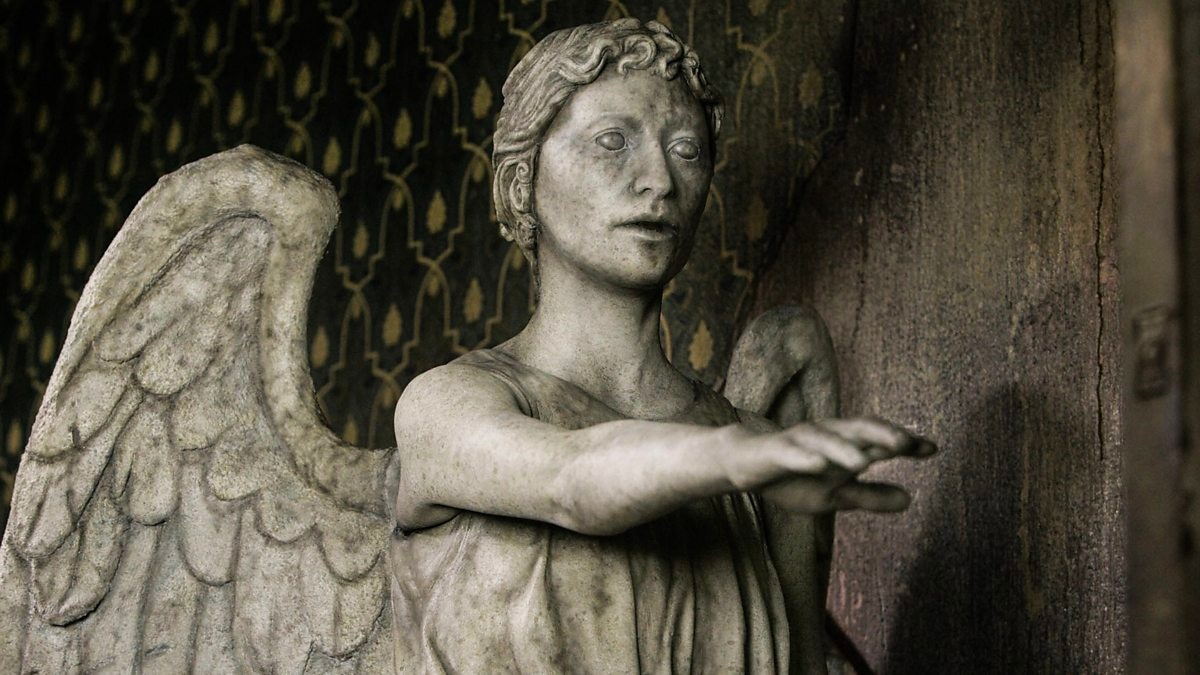
Dial up the scares…
Doctor Who has lost me. As a child, sitting down at 6PM on a Sunday night to watch the show was a sacred ritual. I rarely demanded TV time for specific shows, but I wouldn’t miss Doctor Who for my life.
I made it about as far as Peter Capaldi’s final season, albeit begrudgingly, before I staved off altogether, opting to only watch critically acclaimed episodes - and unfortunately for the brilliantly talented Jodie Whittaker, there have not been many.
For me, there’s just something missing from the new seasons - or rather, multiple somethings - that episodes like Blink and its contemporaries had. The angels. they’re pretty spooky - but many Doctor Who villains are. What really elevated the Weeping Angels was all in the production.
‘Blink’ was directed by Hettie MacDonald (who was also the first woman to direct an episode since the show’s revival), and it’s a crying shame she never went on to direct another.
MacDonald challenged many of the cinematic conventions of Doctor Who’s revival seasons. Aesthetically, the episode was cold and bleak rather than colorful and warm as most tend to be, aligning itself magnificently with its stone grey antagonists.
The camerawork lends itself to the theme, too - you are caught in the same trap as Sally, desperate to look away from the horrors that chase her but paralyzed by the fear that you as the viewer have to maintain eye contact to protect her. The use of light, darkness, and surprise is dynamic, building immense amounts of tension before the inevitable jump scare.
Much of the horror plays out off-screen, or just in the edges of our perspective as the viewer. Psychotherapist Noel McDermott discussed our fear response to the Weeping Angels, explaining that the cinematography used in episodes featuring the Weeping Angels plays on our natural instincts. “Our peripheral vision enhances and anything that emerges from behind, or our periphery is prioritized for threat assessment when we are afraid,” he told Metro.co.uk in 2021.
Doctor Who doesn’t make a habit of leaning on CGI, and when it does it can be tenuous at best (I’m looking at you, Lazarus Experiment), and the Weeping Angels are a wonderful example of the value of practical effects in horror.
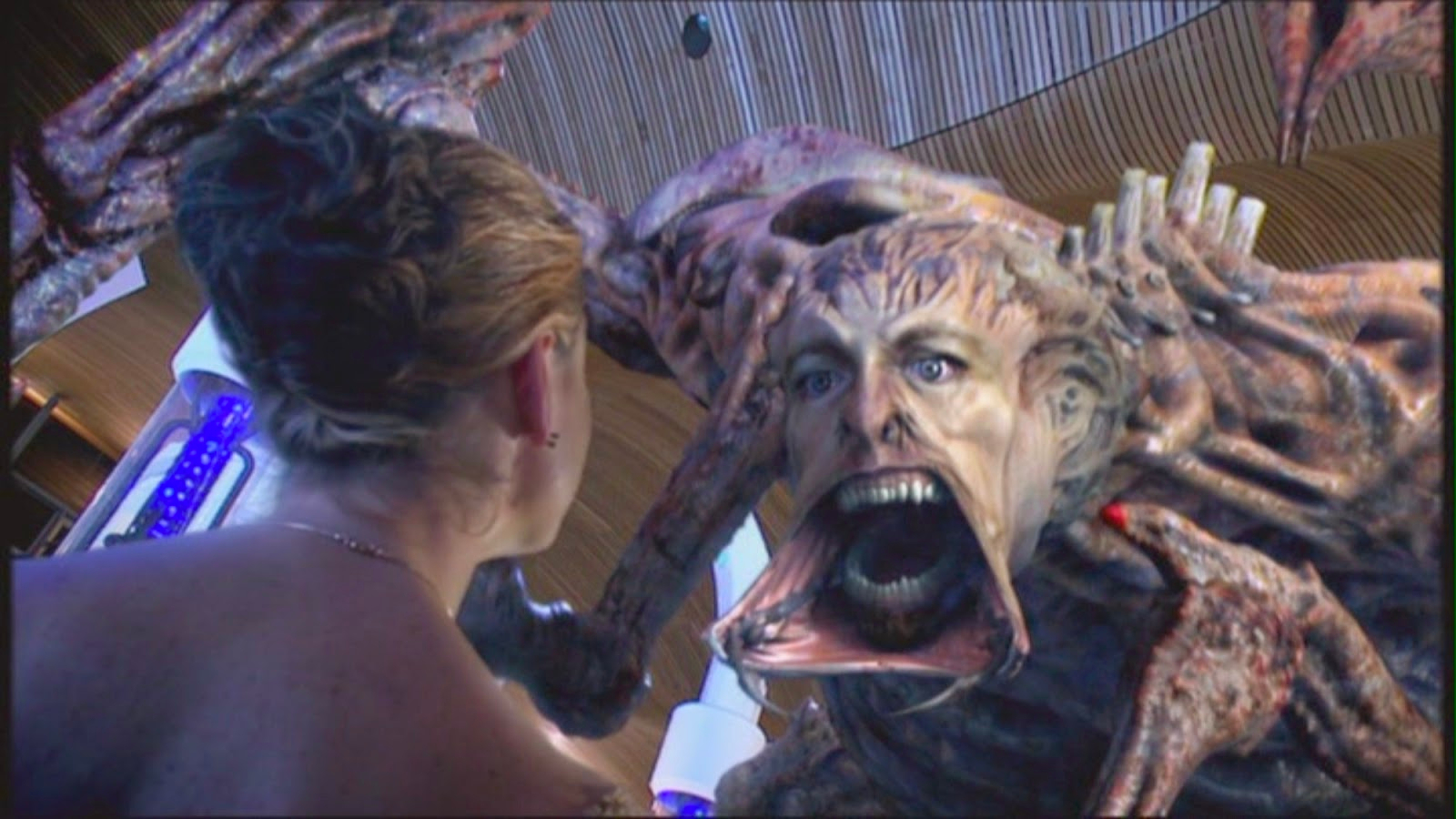
Until I was researching this article, I’d assumed the angels were simply prop statues - so I was impressed when I found out they were, in fact, two actresses in prosthetics, with MacDonald using camera freeze frames to recreate the stillness of the statues. As talented and adaptable as many actors are, having something tangible to interact with is undoubtedly a benefit, and the tension between Sally and the angels crackles like fireworks on screen.
The art of Doctor-lite
Doctor-lite refers to episodes, especially from the early days of the show’s revival, which are characterized by a distinct lack of the Doctor. Whether for budgetary reasons or on account of scheduling, episodes like Blink, Love & Monsters, and later Turn Left, relied much less on the Doctor’s appearance. To a similar effect, there are also episodes like Midnight, where the Doctor is forced to do without a companion.
While the necessity of such episodes may have predominantly stemmed from production challenges, at their core these episodes presented audiences with several benefits - primarily, by giving space to breathe from the deep, complex and sometimes confusing character and season arcs.
Doctor and companion-lite episodes also serve as a reminder of the series' lifeblood; while the Doctor is its namesake, the show is about far much more than its leading character. It’s about space and time, fear and love - even the nature of humanity itself, on account of the Galifraen heroes’ soft spot for our species.
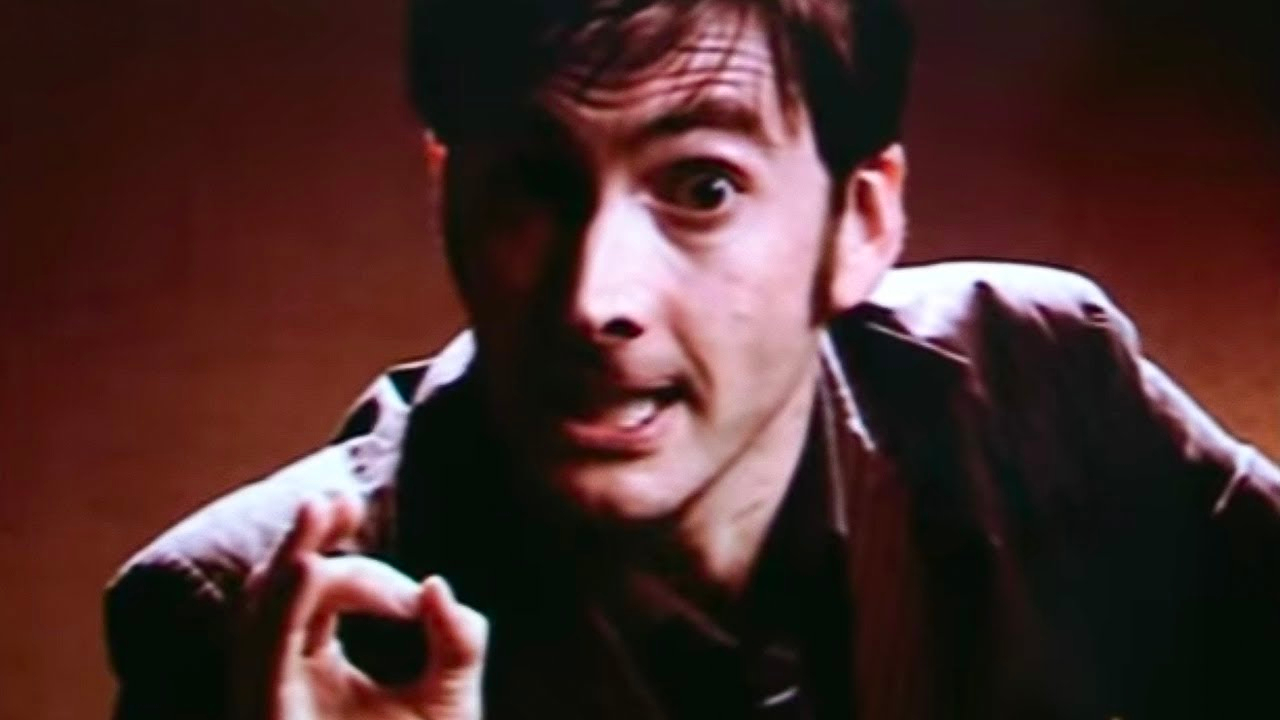
In Blink we see a touching tribute to the fleetingness of human life - to how quickly one can be stolen away, and how life goes on for those left behind. We watch as Sally, in the short span of a single episode, challenges her understanding of her world, grieves her losses and redefines her future.
Showrunners would do well to remember that there’s more to the show than our favorite whacky wanderer. Plus, while there’s no denying that our next Doctor, Gatwa, is a powerhouse of personality and will doubtless bring with him a breath of fresh air to the character, that intensity in itself may require the respite of the occasional Doctor-lite episode.
Dare to be different
Blink’s final teaching is that the show needs to be unafraid of change. In addition to the aforementioned unique horror mechanics and Doctor-lite-ness of the episode, Blink subverted viewers' expectations by reducing its dependence on the series’ standard formula of tropes.
Now, this wouldn’t work every episode: Doctor Who is a show driven by its use of cliché. Blink also hasn’t lost this - we have plenty of hamminess, sci-fi babble from the Doctor and, of course, lots of running down corridors and looking scared.
However, these tropes don’t form the foundation of the episode; there’s more than enough outside of these Doctor Who signposts to flesh out Blink.
A great episode to compare and contrast with this is one of the worst-received episodes, Mark Gatiss’ Sleep No More, a found footage episode, which seems like a prime opportunity to capitalize on a more modern horror technique, yet the episode falls flat on many counts.
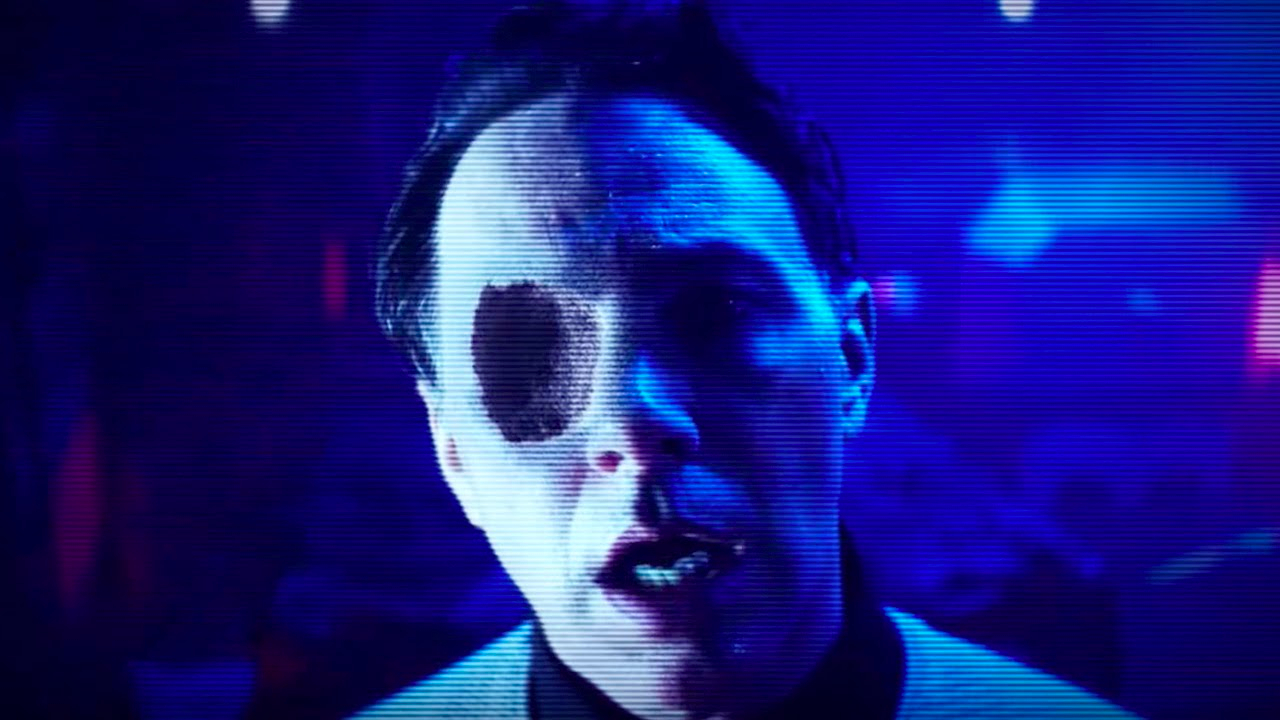
So, why did it fail? It was just too Doctor Who-y. Gatiss’ career with Doctor Who is long-reaching, and stems from a nostalgic appreciation of many classic elements from the series - to his strength, mostly, in episodes like The Crimson Horror and The Unquiet Dead.
In his first venture writing a space-based episode rather than time travel-centric, Sleep No More petered out as a ham-fisted attempt to work in modern horror - with an emphasis on ham. The concept was there, Peter Capaldi was on-point and the psychological elements all lined up to make what should have been a fear-fest, but instead, the episode felt like all of these elements had just been plastered over the top of your bog-standard base under siege episode.
Blink, by contrast, reversed the polarity of the neutron flow, to borrow a classic Doctor phrase, building up from the concept and sprinkling in the Doctor DNA instead of the other way round. It’s something the show never quite managed to recapture in subsequent seasons, and especially not in episodes reviving the Weeping Angels like The Angels Take Manhattan.
Doctor What’s next
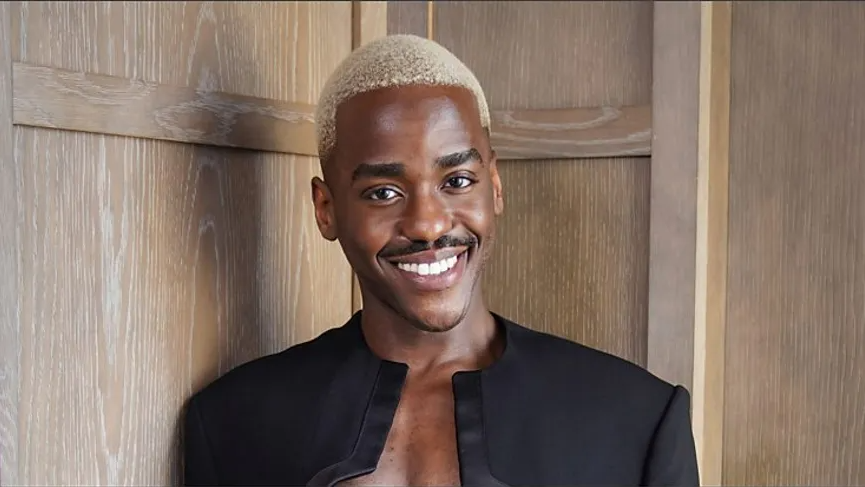
This is by no means a call to just return to the days of old. Doctor Who must be an immensely difficult show to innovate, given its legacy, and the world has changed drastically even since Christopher Eccleston’s time as the Ninth Doctor.
There’s plenty that can be said of showrunner Chris Chibnall’s recent seasons - things that others have said already. Jodie Whittaker’s Doctor may not have been enough to draw me back in, but I hugely admire the show’s tenacity in improving diversity and mixing up the cast formula - and with the recent appointment of Gatwa as the fourteenth Doctor, we could be about to see yet another rebirth for the series.
The challenge is, no matter how much of a shake-up Doctor Who undergoes with its cast, the writing, direction and concepts must follow suit, at least often enough to give people that breathing space from the standard formula.
So while this may read as a “go back to what Blink was”, it’s instead a plea for showrunners to loosen their grip on the show’s creative energy. Let go of the formula; be adventurous and imaginative, give yourself challenges to overcome in how you conceive storylines and fantastical creatures. Doctor Who is a show that has always thrived in adversity, and it’s long overdue a new foe.
Get daily insight, inspiration and deals in your inbox
Sign up for breaking news, reviews, opinion, top tech deals, and more.

Josephine Watson (@JosieWatson) is TechRadar's Managing Editor - Lifestyle. Josephine is an award-winning journalist (PPA 30 under 30 2024), having previously written on a variety of topics, from pop culture to gaming and even the energy industry, joining TechRadar to support general site management. She is a smart home nerd, champion of TechRadar's sustainability efforts as well and an advocate for internet safety and education. She has used her position to fight for progressive approaches towards diversity and inclusion, mental health, and neurodiversity in corporate settings. Generally, you'll find her fiddling with her smart home setup, watching Disney movies, playing on her Switch, or rewatching the extended edition of Lord of the Rings... again.